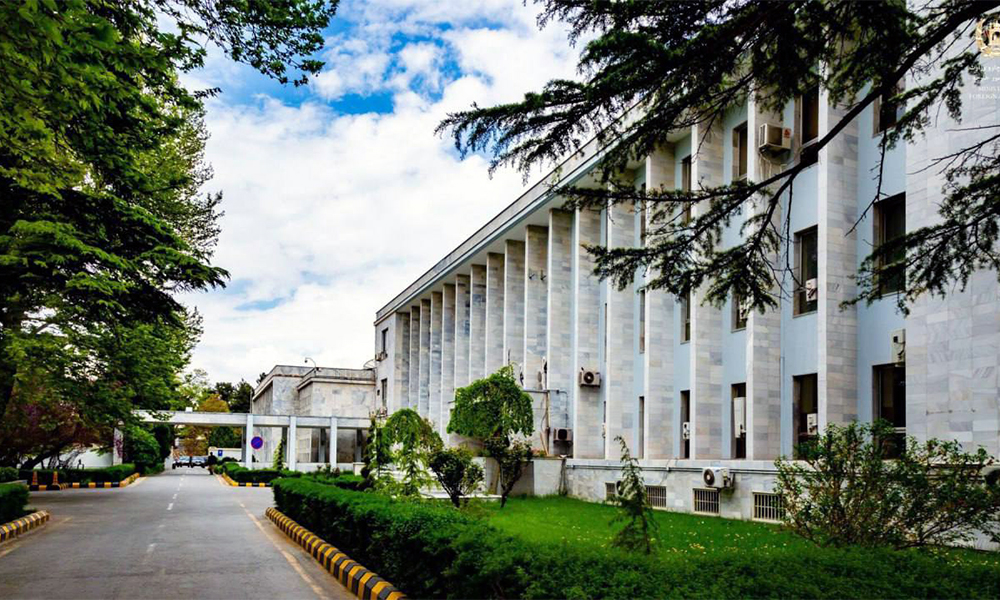IEA’s Foreign Ministry has expressed disappointment at the adoption of Resolution 2721 requesting the UN Secretary-General to appoint a Special Envoy (SE) to Afghanistan despite the existence of division among permanent members of the UNSC.
According to a statement issued by the IEA, the decision was taken despite two permanent members of the UNSC requesting more time for deliberations and clarifications on the independent assessment report issued in November which called for greater engagement with Afghanistan.
It was also taken “without any prior consultations with the Afghan government.”
“The government of Afghanistan reiterates that the appointment of an additional SE for Afghanistan in the presence of UNAMA is unnecessary as Afghanistan is not a conflict zone & is ruled by a central government that can secure its national interests, fulfill its obligations & manage all affairs through bilateral & multilateral mechanisms,” the statement read.
“Special envoys throughout the contemporary history of Afghanistan and the world have not only failed to resolve any conflicts but have complicated situations further via the imposition of external solutions,” it added.
“While welcoming all attempts at a more robust and enhanced engagement with Afghanistan by the UN, the approach of the government of Afghanistan will ultimately be guided by the unaltered religious beliefs, cultural values & national interests of the people of Afghanistan,” the statement said.
IEA’s foreign ministry has called on the United Nations to consider ground realities when making decisions about Afghanistan and not be influenced by any party.
The response comes after the United Nations Security Council adopted a resolution on Friday calling for the appointment of a special envoy so as to increase engagement with the country and leaders of the IEA.
The resolution calls on the UN Secretary-General Antonio Guterres to name a special envoy to promote the independent report’s recommendations, particularly regarding gender and human rights, AFP reported.
The resolution was adopted after 13 members of the Security Council voted in favor, while Russia and China abstained.
“The UAE and Japan firmly believe the independent assessment serves as the best basis for discussions going forward,” said Japan’s UN ambassador Yamazaki Kazuyuki ahead of the vote.
“The resolution highlights the need to increase international engagement in a more coherent, coordinated and structured manner, as the independent assessment states.”
The United Arab Emirates and Japan have responsibility for raising the situation in Afghanistan at the Security Council as so-called “pen-holders” for the issue.
“The United States strongly supports this resolution’s call for a UN Special Envoy for Afghanistan. A Special Envoy will be well positioned to coordinate international engagement on Afghanistan, including with relevant Afghan political actors and stakeholders,” said the United States’ representative following the adoption of the resolution.
China said that the follow-up by the Council to the independent assessment should be taken in full communication with the Afghan authorities, respecting their opinions, with the decision to be made after extensive consultations with various stakeholders
“A forcible appointment of a Special Envoy in disregard of the views of the country concerned may not only lead to the Special Envoy unable to discharge their functions at all, but also heighten the antagonism and confrontation between the international community and the Afghan authorities, which completely runs counter to the signal sent by the independent assessment to step up constructive engagement with the Afghan authorities,” said Geng Shuang, China’s envoy at UN.
Russia also called for the UN Secretary-General to consult with the IEA over the appointment of a special envoy.
“We would like to make it clear that we will not support the Secretary-General’s decision unless it has the approval of the de facto authorities,” said Anna Evstigneeva, Deputy Permanent Representative of Russia at the UN.
“We are convinced that the Afghan issue can move from an impasse only if there is consistent and patient dialogue with the de facto authorities and if certain Western donors abandon their usual rhetoric and stop manipulating with humanitarian aid,” she added.











